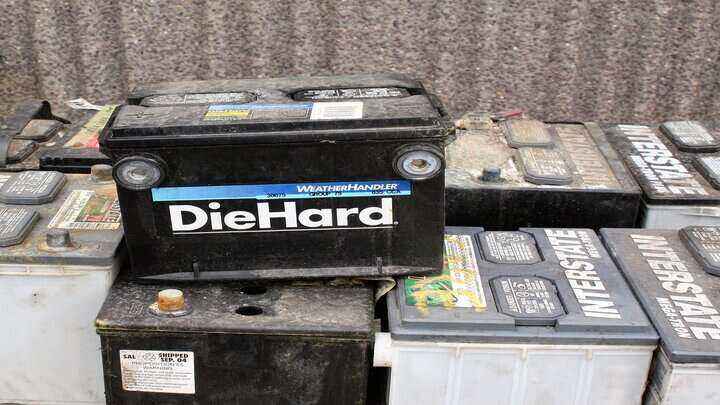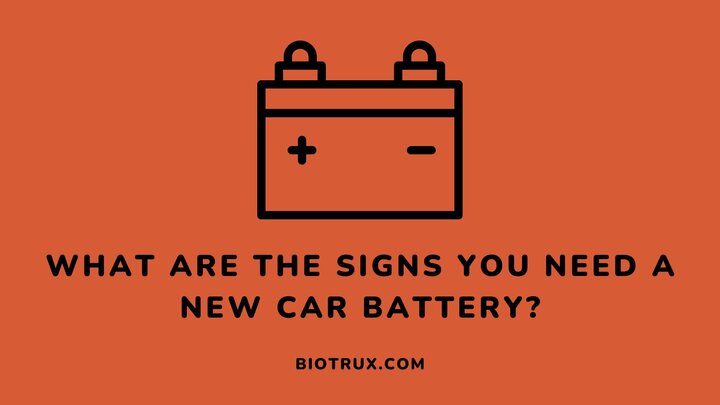A battery typically powers most (if not all) electrical devices. It is often the first component to check when cars stop functioning. The signs it gives off can help you decide whether you need a new car battery.
Car batteries do not work in isolation. They function alongside the alternator and provide the necessary charge for the electrical component of a car to function. After providing this initial charge, the alternator assumes the responsibility of charging the battery until the car is turned off.
A car battery also protects against the electrical surge. With this array of responsibilities, various issues are attached to a failing battery.
This guide compiles the major signs you must watch out for to decide if your car battery needs a replacement.
5 Signs Your Car Battery Needs Replacing

1. Difficulty starting
One of the most prominent signs that your battery may fail or need replacement is when you struggle to start your car.
This is because the communication between such a battery and the alternator has become sluggish, resulting in a slow engine turnover.
It would be unwise to wait for such a battery to die completely before replacing it. If that happens, you will hear a clicking sound at every attempt to start your car.
2. Warning indicators on your dashboard
It is a common practice to always monitor the check engine light and other indicators on your car’s dashboard. They are often a signal that there is a problem with the battery or other systems in your car.
When you see these indicators, the best thing is to consult a mechanic. They are professionals when it comes to testing batteries and advising a replacement.
3. Electrical malfunctions
A common symptom of electrical malfunctions related to a failing battery is dim headlights.
When your car’s headlights do not appear as bright as they used to, it means your battery is failing to supply enough charge to the electrical component of your car.
Not just the headlights; interior lights may also dim or fluctuate. Other electrical malfunctions include an erratic response from windows, door locks, and stereo systems.
Take your car to an auto shop if you notice this symptom. There is a high chance you would need to replace your car battery.
4. Poor performance in frigid conditions
Batteries generally do not enjoy functioning in extreme conditions (hot or cold). For car owners in regions with frigid temperatures all year round, you must always be mindful of the health of your car battery, especially during winter.
Significantly low temperatures affect batteries such that their electrochemical processes slow down. Hence, a maximum charge will be needed to power your engine, which should not always be the case.
If you notice your car is struggling to start during the winter, it may be a sign that the battery is failing due to the huge workload it has overcome over time. This is why it is always best to replace a car battery ahead of winter.
5. A weird (rotten egg) smell
A weird and unpleasant smell indicates that your battery may need replacement. If this smell mimics that of a rotten egg, it means your battery is leaking—a phenomenon known as outgassing.
At this point, the sulfuric acid (car battery liquid) is already getting exposed and damaging other components of your car. It is a no-brainer to replace such a battery.
The wisest decision is to consult an auto expert immediately after you perceive any smell from your vehicle.
Will a New Battery Make Your Car Run Better?
Replacing a failing battery with a new one will improve the performance of your car. Essentially, a new battery will reset your car’s EMS (Engine Management System) to the original (factory) configuration.
Hence, there can be only one outcome: better performance and smoother functioning. However, in cases where things do not get better with a battery replacement, you may need to check for the following:
- Alternator issues: the role of an alternator is to recharge your car battery while you drive. A faulty alternator means the new battery won’t be recharged and will die soon after replacement.
- Starter problems: From the name, this is the device responsible for starting your car. If there is an issue with your starter, you won’t be able to start your car (even with a new battery).
- Another factor that may be responsible for a car not starting after getting a new battery is if you end up with a bad or already drained one.
FAQs
Can a car battery last ten years?
Car batteries generally last about 3 to 5 years, depending on usage. Those that last up to 10 years usually undergo less usage with superb maintenance.
How often should you replace your car battery?
You should replace your car battery every 4 to 5 years. This estimate heavily relies on usage and other factors that affect the battery’s cycle count.
What is the difference between a bad battery and a bad alternator?
When your car battery is bad, it will be unable to produce enough juice to power its engine.
A bad alternator, on the other hand, will fail to recharge your battery when your car is running and is more expensive to repair.
Conclusion
Car batteries will naturally degrade. Whether their failure is completely natural or not, the aforementioned symptoms indicate that replacement is the best option.
However, before deciding what to do, you should consult an automobile expert for a proper diagnosis and the best replacement for your car. Once all that is settled, you may replace the battery if you know how.
I hope you found this guide helpful. If you want to learn how to replace your car battery, kindly check out my guide on how long it takes to replace a car battery.
Thanks for reading.

